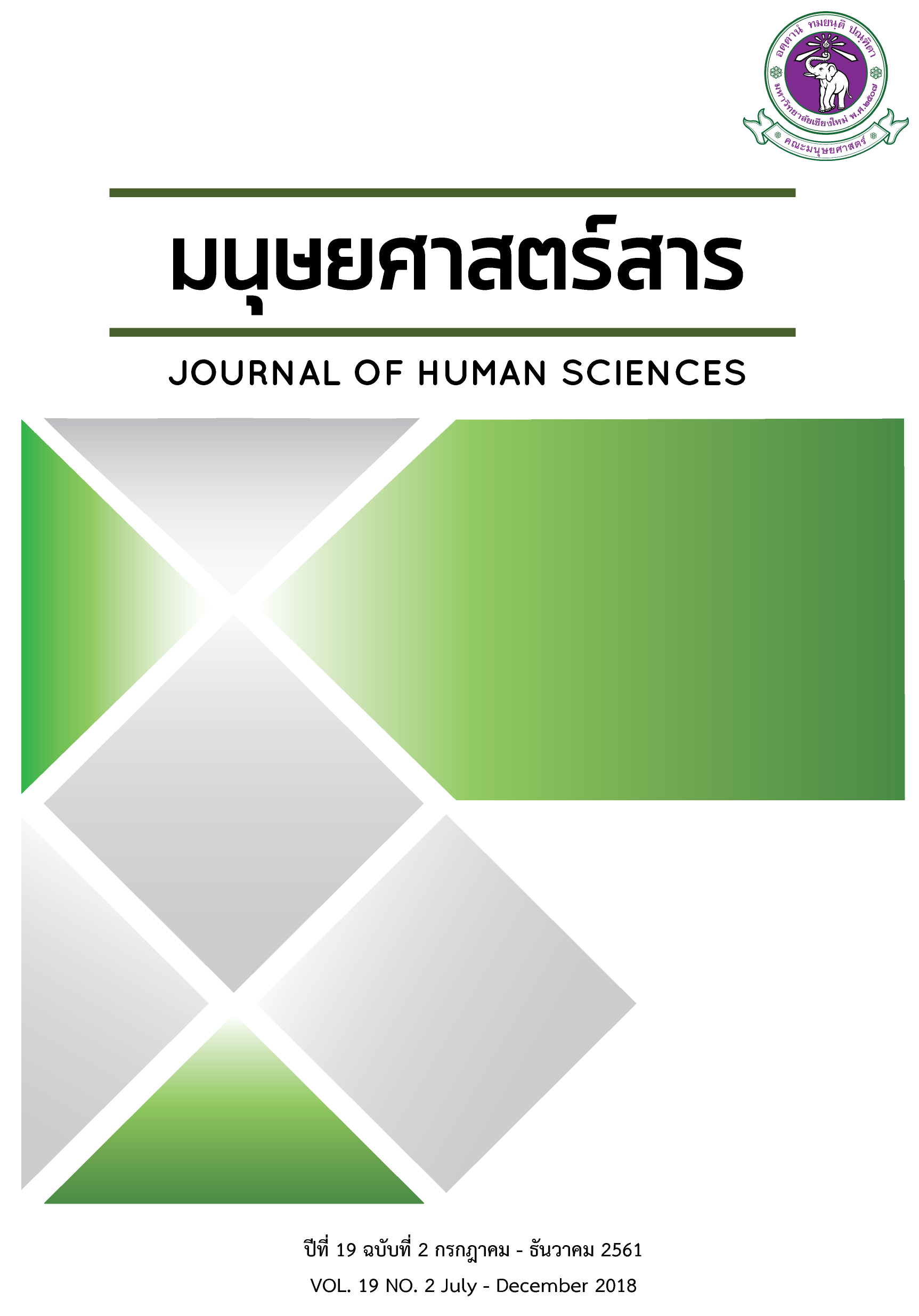พลังแห่งการปลดปล่อยของอภิบันเทิงคดีและการเล่าเรื่อง ในนวนิยายเรื่อง จุติ ของ อุทิศ เหมะมูล
Main Article Content
บทคัดย่อ
บทความวิจัยชิ้นนี้นำเสนอการวิเคราะห์นวนิยายเรื่องจุติ (2558) ของอุทิศ เหมะมูล โดยผู้วิจัยมองว่านวนิยายเรื่องนี้เป็นงานเขียนประเภทอภิบันเทิงคดีที่มุ่งแสดงพลังแห่งการปลดปล่อยของวรรณกรรม การมองเช่นนี้มีรากฐานมาจากการที่ผู้วิจัยได้ทำการศึกษาค้นคว้าแนวคิดและกรอบทฤษฏีสำคัญๆเกี่ยวกับบทบาททางสังคมและการเมืองของวรรณกรรม บทความนำเสนอว่านวนิยายเรื่องจุติใช้กลยุทธ์แบบอภิบันเทิงคดีเพื่อดึงความสนใจของผู้อ่านไปที่ความสัมพันธ์ระหว่างเรื่องแต่งกับ‘ความเป็นจริง’ และเพื่อเน้นย้ำถึงความสำคัญของการสรรสร้างรูปแบบการเขียนงานวรรณกรรมที่แตกต่างออกไปจากรูปแบบเดิมๆเพื่อสะท้อนปัญหาหรือวิกฤติการณ์ต่างๆของสังคมปัจจุบันได้ดียิ่งขึ้น การดึงความสนใจของผู้อ่านไปยังความเป็นเรื่องแต่งของงานวรรณกรรมและบทบาทของผู้เขียนในการโน้มน้าวชักจูงผู้อ่านยังสามารถทำให้เห็นความคล้ายคลึงระหว่างเรื่องแต่งและโลกแห่ง‘ความเป็นจริง’ที่อาจมีความเป็นเรื่องแต่งอยู่ นั่นคือในโลกแห่ง’ความเป็นจริง’หรือโลกนอกเรื่องแต่งนั้น บ่อยครั้งมนุษย์เราก็มีการสื่อหรือถ่ายทอดเรื่องราวประสบการณ์ผ่านทางเรื่องเล่าในลักษณะที่ไม่ต่างจากการที่นักเขียนสร้างโลกแห่งจินตนาการในนิยาย ที่สำคัญอีกประการหนึ่งก็คือผู้แต่งนวนิยายเรื่อง จุติ มีการปรับใช้เทคนิควิธีของการเล่าเรื่องมุขปาฐะเพื่อโต้กลับอำนาจนำโดยหวังสร้างความสั่นคลอนและชี้ชวนให้ตั้งคำถามต่อเรื่องเล่าและอุดมการณ์หลักของสังคมไทยปัจจุบันโดยเฉพาะชุดเรื่องเล่าและอุดมการณ์ที่สนับสนุนโครงสร้างอำนาจแบบไม่เท่าเทียม กรอบแนวคิดในการวิเคราะห์ของบทความนี้ได้มาจากการศึกษาค้นคว้าเกี่ยวกับอภิบันเทิงคดี เรื่องเล่าโต้กลับ และแนวคิดโลกในอุดมคติจากมุมมองของ รูธ เลวิตัส


